Q&A: What is the royal train?
The Duke and Duchess of Cambridge are undertaking a tour onboard the royal family’s railway carriages.

The Duke and Duchess of Cambridge are setting off on a festive morale-boosting tour around the country on the Royal Train.
– The royals have their own train?
Yes. The present Royal Train came into service in 1977 to mark the Queen’s Silver Jubilee, but the royal family have had their own dedicated train since Queen Victoria’s reign.
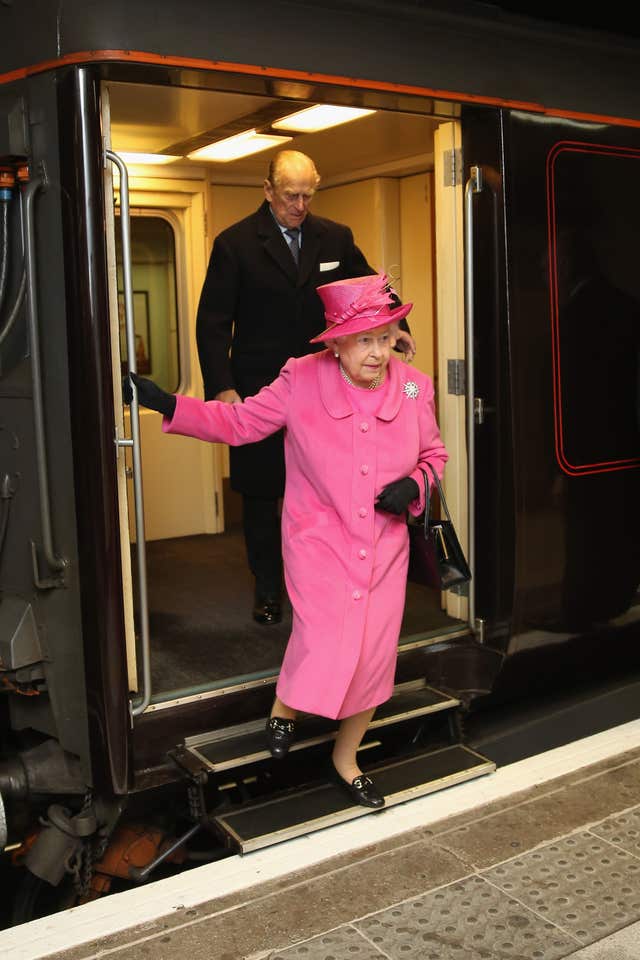
Its livery is a pristine, highly polished burgundy known as Royal Claret, emblazoned with royal crests, with black coach lining and grey roof.
It has nine carriages – but not all of them are always used.
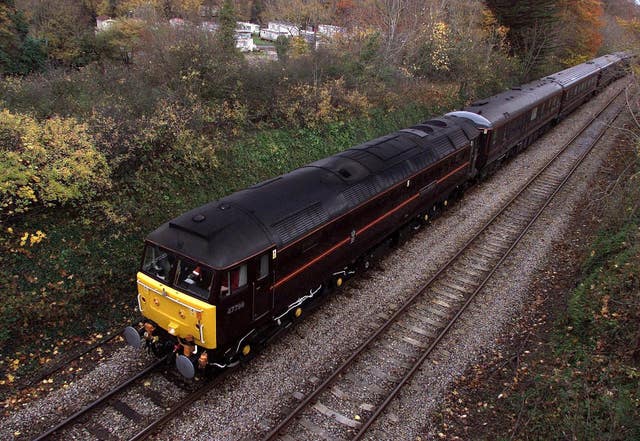
Surprisingly not. The royal train is more functional than palatial and its furnishings are outdated.
Royal aides once described it as being fitted with bathroom fixtures “you could find in Homebase or B&Q” and the decor as “very G-Plan” which was popular in the 1960s and 70s.
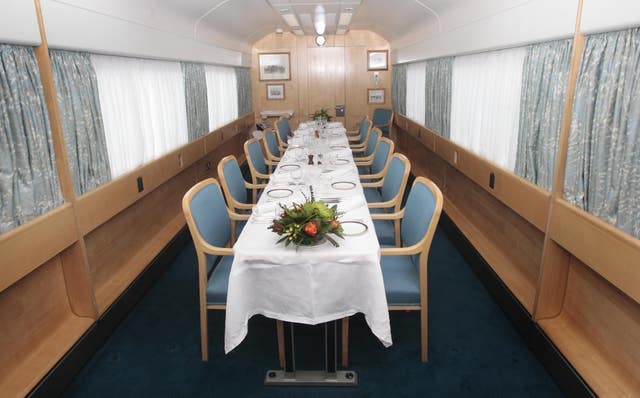
– Who uses it?
Normally only the most senior royals – the Queen, the Duke of Edinburgh before he retired, and the Prince of Wales and the Duchess of Cornwall.
– Anyone else?
The corgis used to accompany the Queen – and also the Queen Mother – onboard for journeys to Sandringham or Balmoral.

– What is it used for?
For official engagements, and for longer journeys around the UK such as to Scotland or Norfolk, especially when the Queen’s children were young.
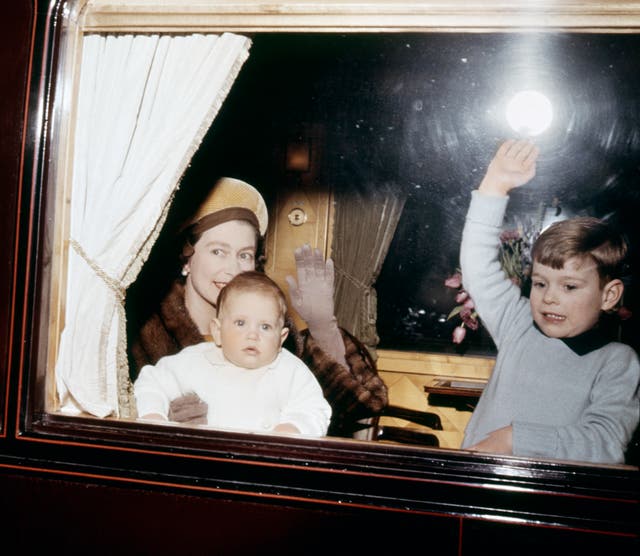
The monarch toured Britain on the train for her Golden Jubilee in 2002.
– Does the Queen have her own carriage?
Yes. It’s a private 75ft long air-conditioned and electrically heated saloon carriage which contains a bedroom with a single bed, a sitting room, a desk for working on the go, dining quarters – and bathroom complete with a full-sized bath.

The Duke of Edinburgh has a saloon carriage of a similar design but with a kitchen, green curtains, matching chair cushions and a brown carpet.

– And the Prince of Wales?
Heir to the throne Charles has his own lounge car with a bedroom, bathroom and study with a small writing desk and a blue and white floral patterned sofa which matches the curtain fabric.
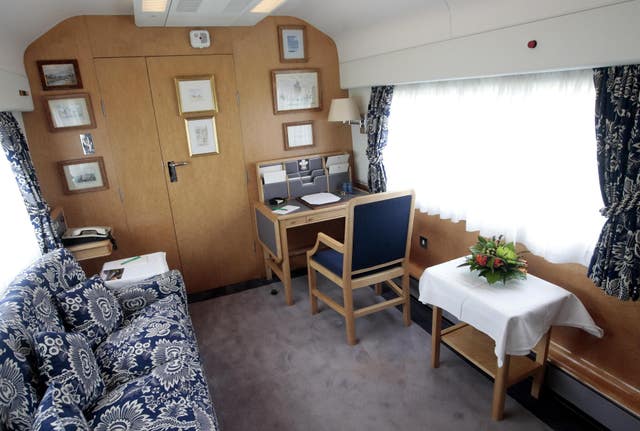
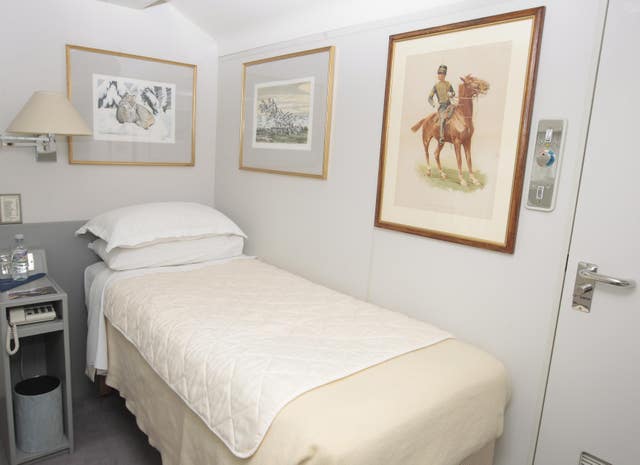
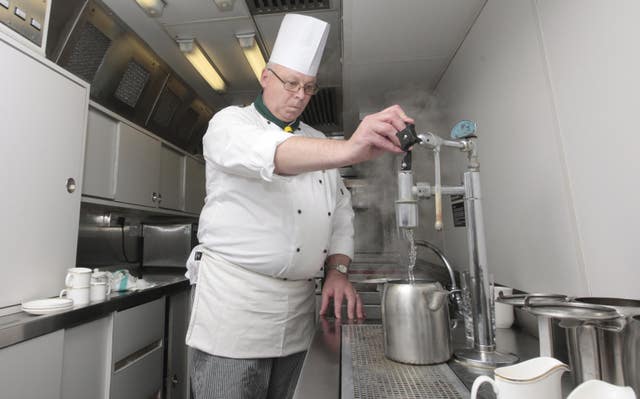
It depends on the royal diary.
Only three trips – two by the Prince of Wales and one by the Queen – were taken on the Royal Train in the 2019/2020 financial year, but the total cost was more than £63,000.
– How much?
The cost – met by the taxpayer – has long been controversial and the train was nearly scrapped in 2013 when it was feared the rolling stock would have to be replaced.
During the Golden Jubilee year of 2002, the train’s journeys cost £872,000.
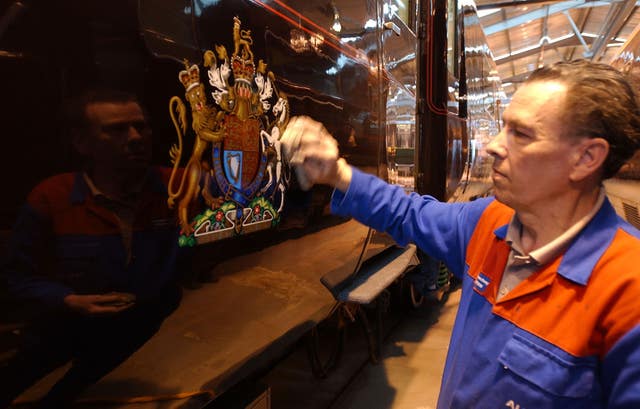
– How much does it cost per mile?
It depends on the journey. In 2017, an £18,317 trip by Charles from London to Cwmbran cost, according to calculations by the PA news agency, £130.84 per mile.
A standard anytime rail ticket for the same journey at the time cost just £1.30 per mile.
– Can’t the royal family catch a normal train?
They sometimes do. The Queen usually travels First Class to Sandringham for her winter break.
– So why is there still a Royal Train?
Royal aides believe it offers the best option for safety, security, efficiency and minimum disruption to others.
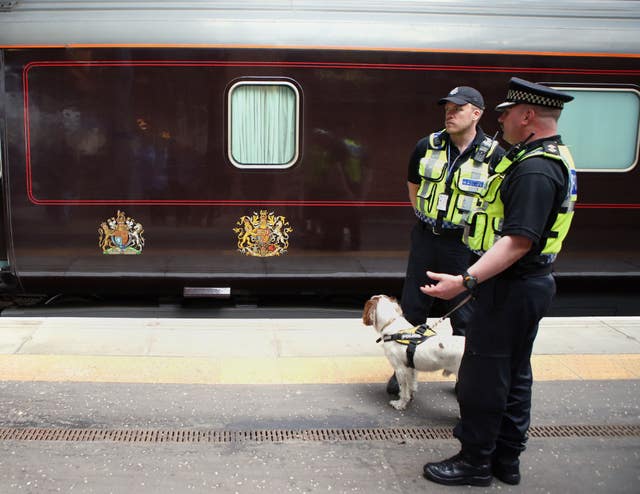
It often travels overnight so as to not to slow up other trains, plus accommodation does not need to be arranged for the royals, and, unlike helicopters, it can run in bad weather.
– Is this William and Kate’s first time on the royal train?
Yes for Kate, but not for William. It will be their first time on the train together.
As a child, William travelled on it to Balmoral, and on the day of his mother Diana, Princess of Wales’ funeral in 1997, William, Charles, Prince Harry and the Spencer family made the journey from London to the princess’s ancestral home Althorp by Royal Train for her burial.

– Who else has used it?
The Duchess of Sussex accompanied the Queen to Cheshire on the royal train in 2018 for what was her first joint royal engagement with the monarch.
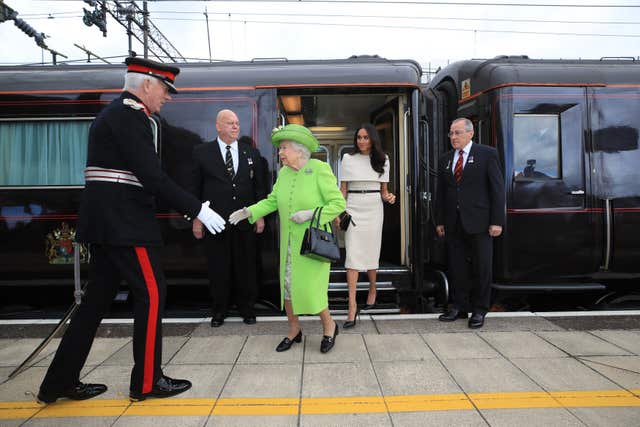
No. It’s for royals only.
Dignitaries are sometimes allowed to use it. Cherie Blair hosted a trip on the train for the wives of the leaders of the G8 group of nations in 1998.
– What about the engine?
The royal train is pulled by one of two Class 67 locomotives – 67005 – The Queen’s Messenger and 67006 – Royal Sovereign, both decorated in royal claret livery.
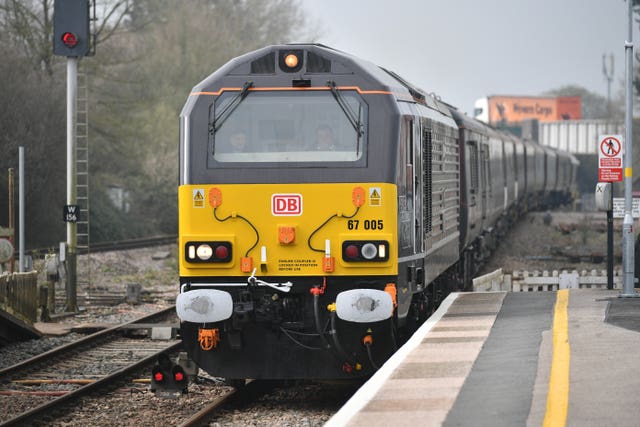
A third Class 67 – 67026 – Diamond Jubilee – which features silver livery, a union flag and a Diamond Jubilee logo was used during the 2012 celebrations.
– So it’s not pulled by a steam locomotive?
Only every now and then for special occasions.
– Weren’t there engines called Prince William and Prince Henry?
Prince William and Prince Henry – named after William and his brother Harry – were a pair of Royal Class 47 locomotives which used to pull the Royal Train, but they were retired in 2004.
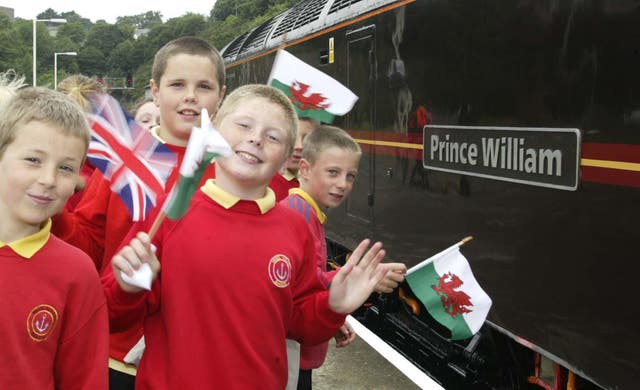
A dedicated carriage was built for the royal family in 1840, with the Dowager Queen Adelaide, the widow of William IV, becoming the first to ride in it.
– What about Queen Victoria?
Victorians believed that driving on fast trains could send you insane.
But Queen Victoria was finally persuaded to travel by rail in 1842 went on a 25-minute passage on the royal train from Slough to Paddington with Isambard Kingdom Brunel, who designed Great Western Railway, riding on the footplate.
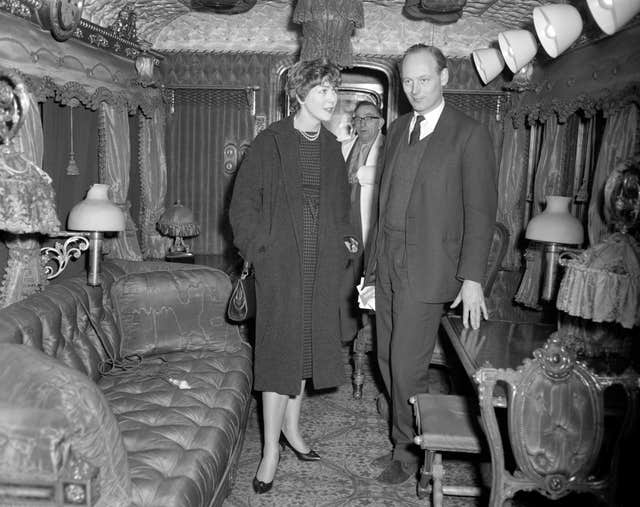
Yes. The 23-year-old wrote in her diary that the journey was “delightful and so quick”.
By 1869, she had commissioned a set of private carriages, decorated in luxurious blue silk and 23-carat gold like a palace on wheels.
– Have there been any controversial journeys?
In 2000, a royal bodyguard discharged his gun on the train while the Queen was sleeping. The bullet hole can still be seen on a table in the staff dining car.
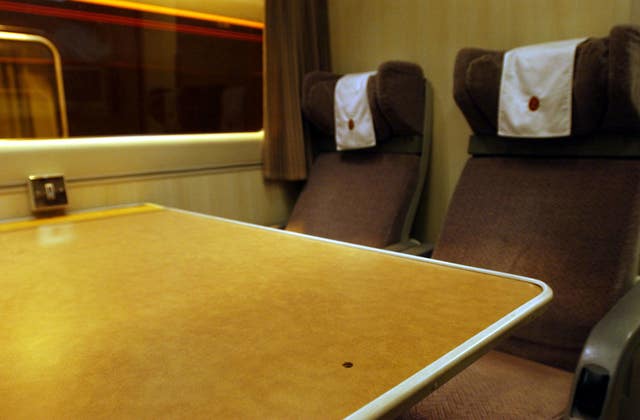
Charles, Diana and her mother always insisted the tale was false.





